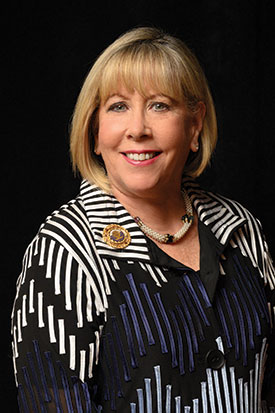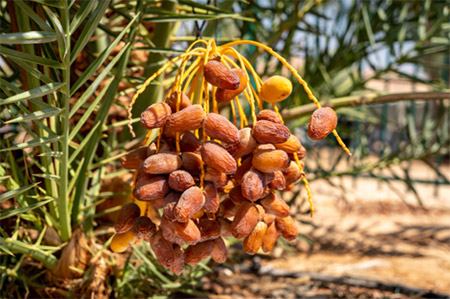Hadassah
President's Column
The Extra Dayenu in Repairing an Imperfect World

Given these tumultuous times, maybe it’s no wonder I find myself humming “Dayenu” in October, not so much because of the divine gifts we invoke at Passover but because of our divinely inspired capacity to repair an imperfect world.
Our founders labored to build a Jewish state that would be a light unto the nations, but I think even they might be awed to see the many fields in which Hadassah has not only helped to improve Jewish and human existence, but also wound up in the center of the action.
As many nations, Israel included, experience new spikes in Covid-19 infections and renewed lockdowns, at least 150 coronavirus vaccines are in development around the world. As of the end of September, 28 had begun clinical trials—and the Hadassah Medical Organization is part of a joint venture that will shortly join the list.
The vaccine candidate was developed by the Israel Institute for Biological Research, headed by Prof. Shmuel Shapira, former deputy director general of Hadassah Ein Kerem. Phase 1 trials will test 100 subjects at HMO and Tel Aviv’s Sheba Medical Center. If initial results are positive, Phase 2 trials will be expanded to a larger cohort of volunteers.
Even as we battle the pandemic, Sukkot reminds us of both the bounty and fragility of our planet, and one of the effects of climate change is the decline of biodiversity. On that score, Hadassah has been at the center of a rare endeavor: Bringing an extinct species back to life. We have been planting trees in Israel for more than a century, but in 2011 National President Marcie Natan planted one that was unique—a tree that sprouted from a 2,000-year-old seed found at Masada. Testing determined that the seed was from a Judaean date palm; though prized in biblical times for the taste and medicinal properties of its fruit, the species had been extinct for centuries.

The seed was brought to life by Dr. Sarah Sallon, director of HMO’s Natural Medicine Research Center, and Elaine Solowey, Ph.D., who runs the Center for Sustainable Agriculture at Kibbutz Ketura’s Institute for Environmental Studies. Sallon obtained the seeds in 2005 and gave them to Solowey, who planted three of them in pots. One sprouted, and after six years the seedling—dubbed the Methuselah Tree because of its ancient root—had grown to seven feet. That’s when Marcie was given the honor of transferring it from its pot to the soil at Ketura.
Because Methuselah was a male of its species, incapable of producing fruit on its own, Sallon searched for seeds collected from other archaeological sites in the Judaean desert. From 30 “new” pips—all in the 2,000-year age range—came the seedling named Hannah. After blooming, Solowey brushed pollen from Methuselah into Hannah’s flowers. Last month, the mother tree delivered more than 100 ripe, delicious dates.
In addition to arboreal genes, Hadassah has scientists who work in human genetics. One is Dr. Tamar Peretz, director of HMO’s Sharrett Institute of Oncology, our world-renowned center for cancer prevention, treatment and research. Dr. Peretz was part of the international team that in 1994 discovered the cancer-linked BRCA1 gene mutation, which is 10 times more prevalent among Ashkenazi Jewish women than in the general female population.
October is Breast Cancer Awareness Month, which reinforces a key lesson of Covid-19: that our own actions can help protect us. Hadassah’s efforts to fight breast cancer rely not only on treatment and research in Jerusalem but on domestic advocacy and raising public awareness in America as well. That makes Hadassah’s volunteer advocates part of the medical solution.
This month and every month, we can be thankful for all Hadassah, its scientists and its members have contributed to Israel, the Jewish people and the world—and we also resolve to do more. Ultimately, “Dayenu” is a refrain for all seasons, helping us channel gratitude for our blessings up to this moment into action for tomorrow.










 Facebook
Facebook Instagram
Instagram Twitter
Twitter
Leave a Reply